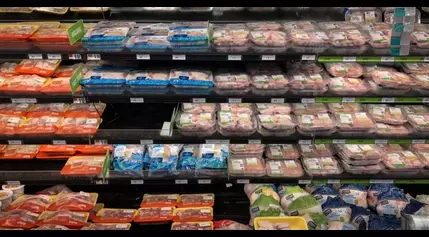Lifestyle

Cultivating a Resilient Future: Transforming Global Food SystemsDroughts are worsening, extreme weather events are intensifying, and conflict is driving food insecurity to alarming levels. Amidst these cascading crises, the world faces a stark reality: at least 733 million people are facing hunger, and nearly 3 billion cannot afford a healthy diet. As we approach World Food Day, it's time to reflect on the state of our food and agriculture systems and explore the solutions that can nourish the world.
Empowering Diverse Solutions for a Sustainable Future
Diversifying Food and Agriculture Systems
Diversity is the foundation of nature's benefits, and it is crucial for improving diets and livelihoods. We need to diversify our food and agriculture systems, not just in terms of the foods we grow, but also in the people, practices, and perspectives involved. This includes encouraging the cultivation of "opportunity crops" like cowpea, millet, and sorghum, which are often overlooked but highly effective in building soil health and profitability, especially in regions like sub-Saharan Africa.Empowering Women and Girls
Empowering women and girls is both a moral imperative and a practical solution to the hunger crisis. Women are unquestionably the most important actors in our food system, and when they have access to the same resources as men, they can lift as many as 100 million people out of hunger. By empowering women in all aspects of their lives, we can improve the well-being of both people and ecosystems.Putting Farmers at the Forefront
To ensure that solutions work for food producers, we need to make space for them to have a literal seat at the table. Farmers, fishers, and ranchers of all genders, ages, and nationalities need to be central to the decision-making process, providing in-person input at international dialogues and co-creating solutions that address the problems they face in the field.Aligning Capital with Sustainable Practices
Addressing the food crisis requires a holistic approach, including a closer look at the way capital is flowing. Smallholder farmers, who produce one-third of the global food, are receiving only 1.7 percent of total climate finance. This needs to change, as we must ensure that farmers have the resources they need to transition to more regenerative agriculture systems.Celebrating Diversity and Collaboration
This World Food Day, we have the opportunity to celebrate the diversity of solutions and the power of collaboration. Organizations like the Arrell Food Institute, the FAO, and the Global Alliance of Latinos in Agriculture are bringing together agri-food leaders and experts to explore solutions that empower women, prioritize farmer-led innovation, and build a more sustainable global food system. By working together, we can create a future where everyone has access to equitable, affordable, and nourishing meals.




















